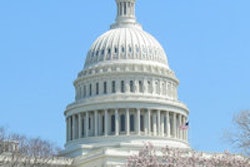
In the latest development in the ongoing Texas Medicaid scandal, a federal report has laid the responsibility for hundreds of millions of dollars spent on dental and orthodontic procedures that may have been medically unnecessary squarely on the Texas state agency that oversaw the program.
The Texas Health and Human Services Commission (HHSC) did not ensure that the prior-authorization process was used to determine the medical necessity of orthodontic services under state Medicaid guidelines, according to a report by the U.S. Office of Inspector General for the U.S. Department of Health and Human Services.
Because payments for Medicaid orthodontic services in Texas have risen sharply in recent years, federal regulators have identified this area as vulnerable to fraud, waste, and abuse, the report noted.
In addition, the Texas Medicaid and Healthcare Partnership (TMHP) "dental director did not follow State Medicaid policies and procedures when determining the medical necessity of orthodontic services and reviewing prior-authorization requests," the report noted.
“The TMHP dental director did not follow State Medicaid policies and procedures.”
"I think anyone who has looked at those orthodontic cases understands that our vendor approved many requests that weren't medically necessary," commission spokeswoman Stephanie Goodman told DrBicuspid.com. "We had strong contract standards in place, but those weren't followed and that's why we cancelled the contract, and the state is suing Xerox to recover that money."
Texas has been rocked by allegations of fraud by dentists and orthodontists accused of bilking the state Medicaid program out of tens of millions of dollars. An Office of Inspector General investigation found $6 billion in fraud and waste within Medicaid from 2004 to 2011.
Medicaid pays for orthodontic services but only those that are medically necessary and that have received prior authorization. The prior-authorization process is intended to determine medical necessity.
The deficiencies occurred because the state agency did not ensure that TMHP properly reviewed each prior-authorization request for medical necessity and that the TMHP dental director followed Medicaid policies and procedures on determining the medical necessity of orthodontic services. As a result, TMHP may have approved requests for orthodontic services that were not medically necessary. Although TMHP failed to properly use the prior-authorization process to determine the medical necessity of orthodontic services, the state agency is ultimately responsible for contractor compliance.
"We recommended that the State agency provide proper oversight of the orthodontic prior-authorization process to ensure that (1) it is used to determine medical necessity and (2) personnel making the prior-authorization decisions follow the appropriate State Medicaid policies and procedures. The State agency partially agreed with our findings," the report concluded.
In May, eight dentists filed suits claiming the state and attorney general "protected" Xerox because they feared a federal clawback for hundreds of millions of dollars in fraudulent orthodontic claims. State regulators gave Xerox a pass because acknowledging the company's improper handling of claims would call into question why Texas repeatedly renewed Xerox's contract, according to the suits.
The lawsuits were the latest suits and countersuits in the state's ongoing Medicaid saga. First, the state sued orthodontists to recover allegedly fraudulent Medicaid payments. Then, the dentists sued the state for withholding reimbursements for questionable claims. And the attorney general sued Xerox, alleging the company wrongly approved hundreds of millions of dollars' worth of Medicaid claims for fraudulent orthodontic claims. Now, this fourth round of lawsuits has dentists blaming the state for continuing its contract with Xerox despite audits that questioned the claims approval process.
After Texas raised dental reimbursement rates in 2007, the number of dentists participating in Medicaid increased from 45.4% to 63.4% in 2010, and claims increased by 240% between 2007 and 2010.
The surging Medicaid costs attracted the federal government's attention, which notified Texas in 2011 that it intended to audit whether the state was approving only medically necessary orthodontic claims. The state Office of Inspector General then put payment holds on the top Medicaid orthodontic billers, including the eight dentists who filed these suits.
State audits in 2008 and 2012 concluded that most, if not almost all, of the claims with handicapping labio-lingual deviation (HLD) scores of 26 or greater (indicating medical necessity) had not been actually "evaluated" at all by Xerox, according to the dentists' suits.
A report by HHSC revealed that in 2010 Texas orthodontists charged Medicaid as much for services as the rest of the U.S. combined. In addition, the Texas Medicaid and Healthcare Partnership, headed by ACS and tasked with evaluating and approving claims, was rubber-stamping the claims, according to the report.
In 2012, the Texas Attorney General's Office, together with the state's HHSC and the HHSC-Office of Inspector General, formed a dental and orthodontic fraud task force to investigate alleged fraudulent overbilling by dental and orthodontic Medicaid providers.



















